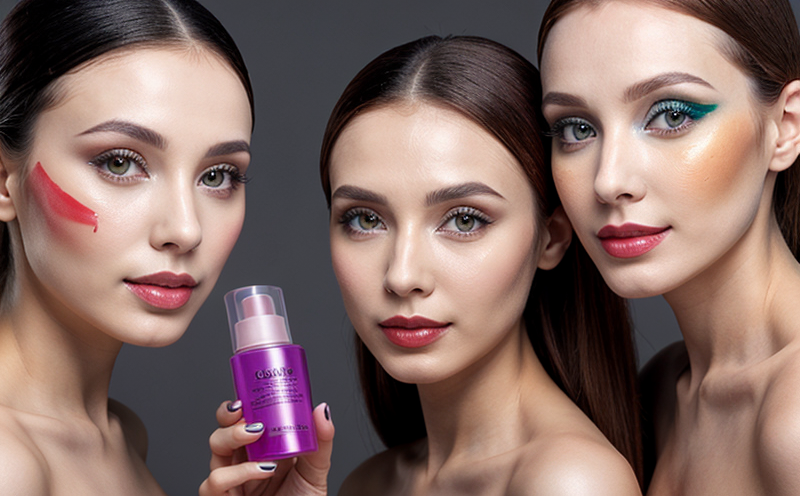Repeated Dose Dermal Toxicity Testing for Cosmetics
Toxicology and safety assessment of cosmetic products are critical to ensuring consumer safety and regulatory compliance. Among the various tests, Repeated Dose Dermal Toxicity (RDDT) testing is particularly important for assessing the potential adverse effects of cosmetic ingredients or formulations when applied repeatedly over a period. This service involves evaluating dermal irritation, sensitization, and systemic toxicity after repeated exposure.
The test typically follows international standards such as ISO 10769:2014, OECD Test Guideline 439 (GDerma), or the equivalent EU and US guidelines. RDDT is essential for products that are intended to be used repeatedly over extended periods, like moisturizers, sunscreens, and hair care products. The test aims to provide a comprehensive understanding of how repeated exposure might impact human health.
The testing process involves several key steps. First, the cosmetic product must undergo thorough preparation, including dilution or formulation adjustments if necessary. Specimen preparation is critical for ensuring consistent and accurate results. Following this, the specimens are tested on animal models according to predefined protocols. This can take weeks depending on the number of test animals required.
The duration of RDDT testing varies based on the product's intended use and frequency of application. For instance, a sunscreen might be tested for up to 28 days with daily applications, while a moisturizer could require longer periods due to less frequent but more prolonged use. During this time, the test subjects are closely monitored for any signs of adverse effects such as skin irritation or systemic toxicity.
At the end of the testing period, detailed observations and clinical evaluations are conducted. Histopathological examinations may also be performed if necessary to assess deeper tissue changes. The results provide a robust dataset that can inform product development decisions and support regulatory submissions.
The data obtained from RDDT is crucial for several reasons. It helps manufacturers identify potential risks early in the development process, allowing them to make informed decisions about ingredient selection or formulation adjustments. This proactive approach not only enhances product safety but also reduces the risk of costly recalls later on.
Moreover, compliance with international standards and regulations is essential for market access. The results from RDDT contribute significantly towards achieving this goal by providing evidence that supports claims made in marketing materials and labeling.
Eurolab Advantages
Eurolab stands out as a leader in providing top-tier cosmetic testing services, including RDDT. Our team of experienced scientists ensures accurate and reliable results that meet the highest industry standards.
- Expertise: With years of experience in toxicological assessments, our professionals bring deep knowledge to every project they undertake.
- State-of-the-Art Facilities: Equipped with advanced equipment and technologies that allow us to conduct precise tests under controlled conditions.
- Comprehensive Services: We offer a full range of cosmetic testing services, ensuring you receive all necessary information for your product development needs.
- Regulatory Compliance: Our rigorous quality control processes ensure that our findings align perfectly with international standards and local regulations.
International Acceptance and Recognition
The results from RDDT conducted by Eurolab are widely accepted internationally. Many countries recognize these tests as part of their regulatory frameworks for cosmetic products. For instance, the European Union's Cosmetics Regulation requires manufacturers to demonstrate that their products are safe through appropriate testing methods like RDDT.
Similarly, the United States Food and Drug Administration (FDA) accepts data from reputable labs performing such studies. This acceptance facilitates smoother market entry into major global markets, reducing barriers for cosmetic companies operating internationally.
Competitive Advantage and Market Impact
Incorporating RDDT early in the product development cycle can give cosmetic brands a significant competitive edge. By identifying potential issues upfront, they can refine their products before launch, potentially avoiding costly rework or recall post-market.
This proactive approach also enhances consumer trust and satisfaction. When consumers know that rigorous testing has been done to ensure safety, it fosters loyalty and positive brand perception. This is especially important given increasing awareness about personal health and environmental concerns among modern consumers.





